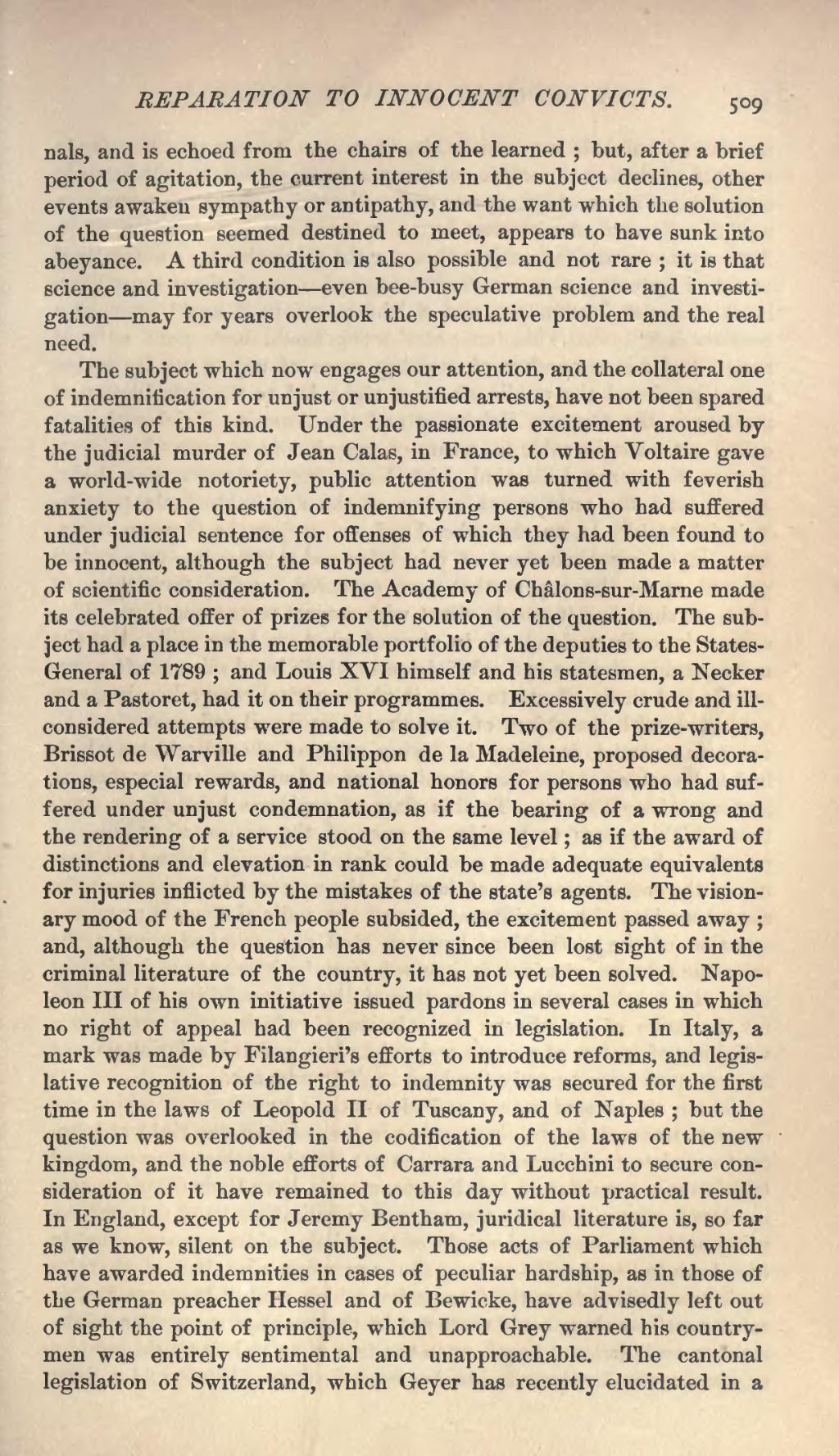nals, and is echoed from the chairs of the learned; but, after a brief period of agitation, the current interest in the subject declines, other events awaken sympathy or antipathy, and the want which the solution of the question seemed destined to meet, appears to have sunk into abeyance. A third condition is also possible and not rare; it is that science and investigation—even bee-busy German science and investigation—may for years overlook the speculative problem and the real need.
The subject which now engages our attention, and the collateral one of indemnification for unjust or unjustified arrests, have not been spared fatalities of this kind. Under the passionate excitement aroused by the judicial murder of Jean Galas, in France, to which Voltaire gave a world-wide notoriety, public attention was turned with feverish anxiety to the question of indemnifying persons who had suffered under judicial sentence for offenses of which they had been found to be innocent, although the subject had never yet been made a matter of scientific consideration. The Academy of Châlons-sur-Marne made its celebrated offer of prizes for the solution of the question. The subject had a place in the memorable portfolio of the deputies to the States-General of 1789; and Louis XVI himself and his statesmen, a Necker and a Pastoret, had it on their programmes. Excessively crude and ill-considered attempts were made to solve it. Two of the prize-writers, Brissot de Warville and Philippon de la Madeleine, proposed decorations, especial rewards, and national honors for persons who had suffered under unjust condemnation, as if the bearing of a wrong and the rendering of a service stood on the same level; as if the award of distinctions and elevation in rank could be made adequate equivalents for injuries inflicted by the mistakes of the state's agents. The visionary mood of the French people subsided, the excitement passed away; and, although the question has never since been lost sight of in the criminal literature of the country, it has not yet been solved. Napoleon III of his own initiative issued pardons in several cases in which no right of appeal had been recognized in legislation. In Italy, a mark was made by Filangieri's efforts to introduce reforms, and legislative recognition of the right to indemnity was secured for the first time in the laws of Leopold II of Tuscany, and of Naples; but the question was overlooked in the codification of the laws of the new kingdom, and the noble efforts of Carrara and Lucchini to secure consideration of it have remained to this day without practical result. In England, except for Jeremy Bentham, juridical literature is, so far as we know, silent on the subject. Those acts of Parliament which have awarded indemnities in cases of peculiar hardship, as in those of the German preacher Hessel and of Bewicke, have advisedly left out of sight the point of principle, which Lord Grey warned his countrymen was entirely sentimental and unapproachable. The cantonal legislation of Switzerland, which Geyer has recently elucidated in a
